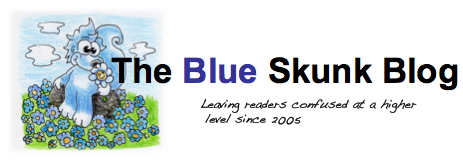NECC Buzzwords
 Wednesday, June 27, 2007 at 07:31AM
Wednesday, June 27, 2007 at 07:31AM Last day of NECC. Whew. Thinking a little about some of the big themes of this conference. Everywhere one hears:
- Web 2.0 (of course) and new information fluency/literacy skills
- Second Life - moving from bleeding to leading edge
- International collaboration/competition
- Creativity/Innovation (new ISTE NETS standards)
- And dare is say it, there is a role for FUN in education
People seem to be "getting" the visual power of PowerPoint. Number of text-heavy slides on the decline. Hurray! Wireless connectivity was excellent at the conference center (but bad at the Omni hotel). Live blogging, twittering, podcasting - ubiquitous.
 My level of concern about giving my own presentation went up a notch this year. First, I knew the talk would be podcast at the NECC site (I'll link on this blog when it gets loaded), but the live blogging meant that the blogosphere would know the quality of your presentation BEFORE you packed up your computer and left the room. A couple interesting side notes from the presentation:
My level of concern about giving my own presentation went up a notch this year. First, I knew the talk would be podcast at the NECC site (I'll link on this blog when it gets loaded), but the live blogging meant that the blogosphere would know the quality of your presentation BEFORE you packed up your computer and left the room. A couple interesting side notes from the presentation:
- I had an 18-year-old young man come up and tell me about HIS company SCRIPTOVIA.com. He's heading to India next week to line up computer services. How much will he be worth when he is 21? (Oh, he said 95% of my comments about the Net Gen were accurate - nice to know.)
- Jeff Utech couldn't get to the session since the room was full. So David Jakes used Skype that allowed Jeff to hear it and live blog it. Is this just a little bit of nerd heaven here or what?
- One very nice you man came up to me after the talk and said, "Mr Johnson, I hope you don't take this the wrong way, (uh, oh.) but when I get to be your age I hope I am as lively as you are." Thanks. I'm glad I got out of the wheelchair to give the talk. It was a sincere compliment, though, and thanks.
The talk when fine thanks to the "lively" group attending. Thanks to each of you!
Peggy Milam did a wonderful job of organizing yesterday's SIGMS Forum (and other events). Good attendance. Alice Yucht is always so funny, informative and provacative!
Of course, getting to visit with friends, too many to mention, is always fun. I always learn so much from those conversations in the hall
Flying out his afternoon. Always nice to go; always nice to come home. I am sure the ideas garnered from the conference will continue to percolate in the weeks to come.
 NECC07
NECC07 






